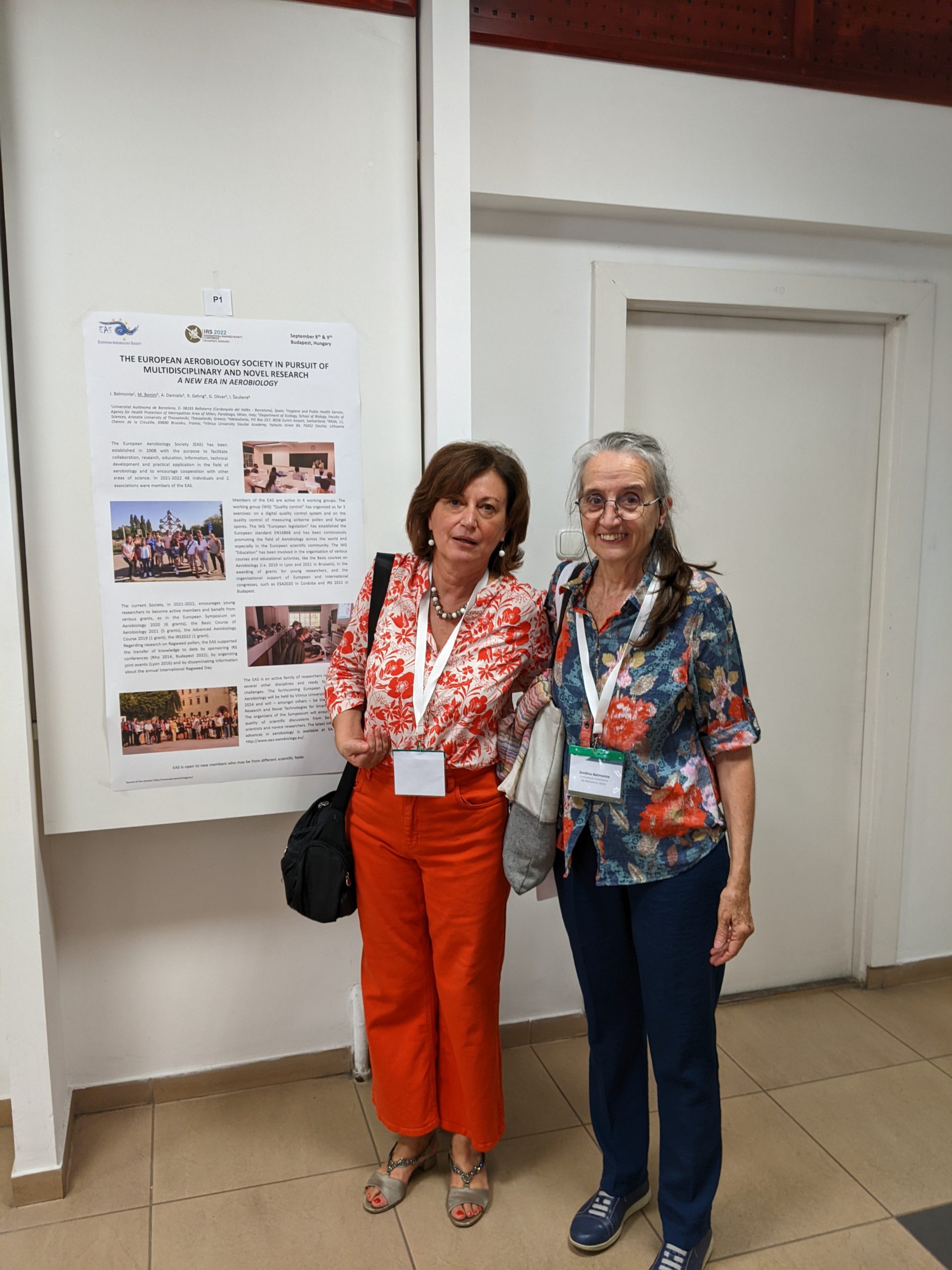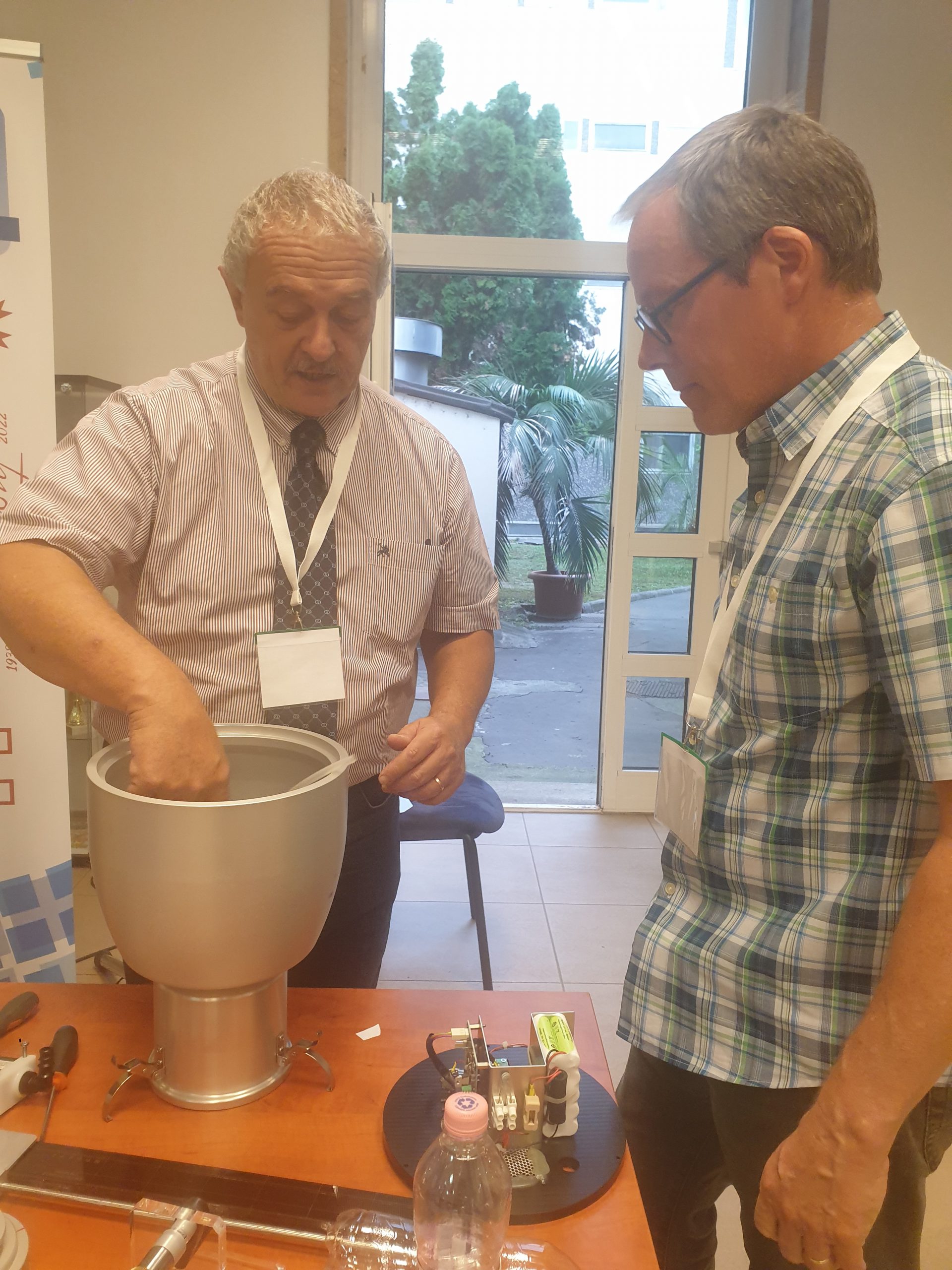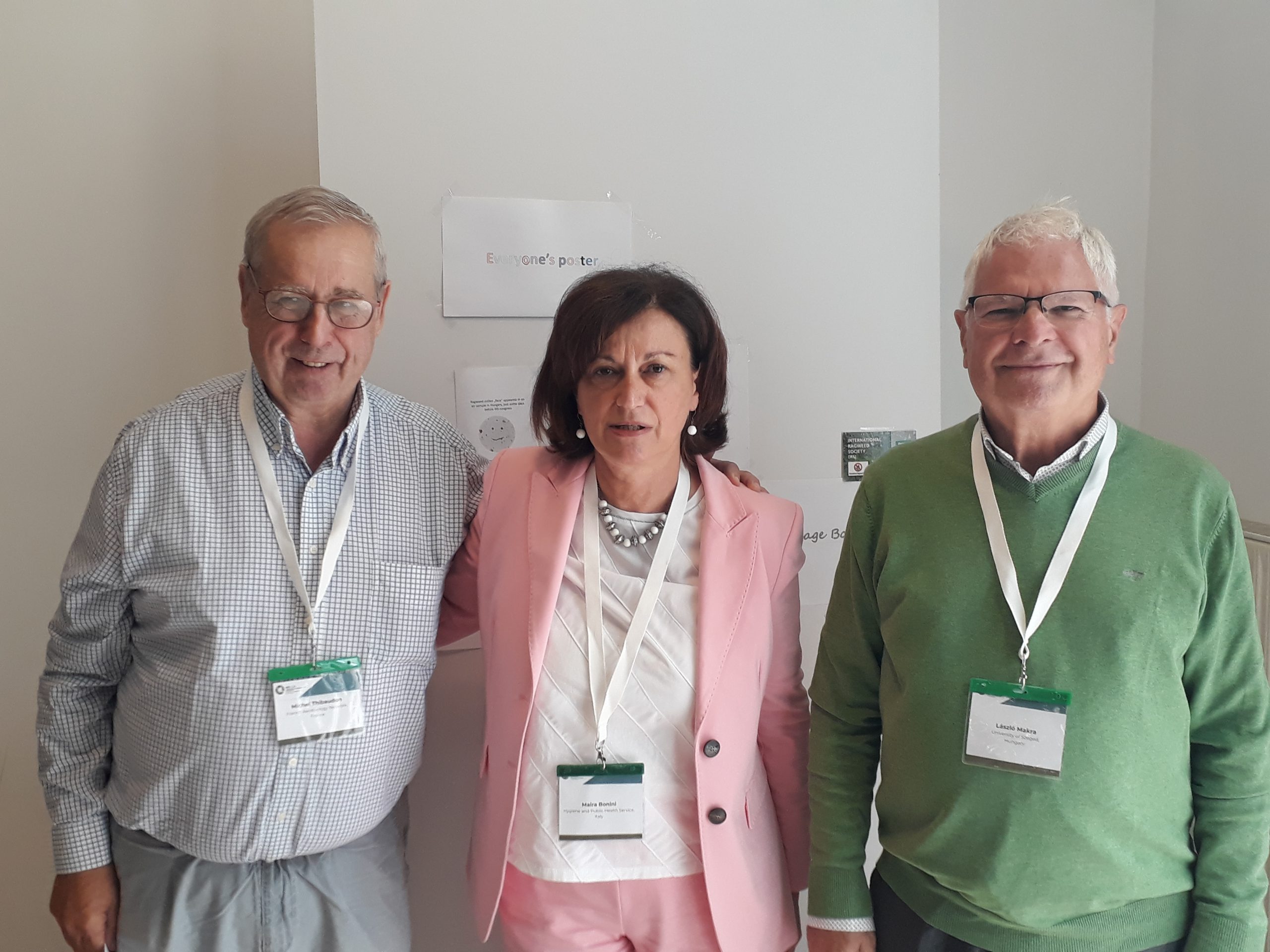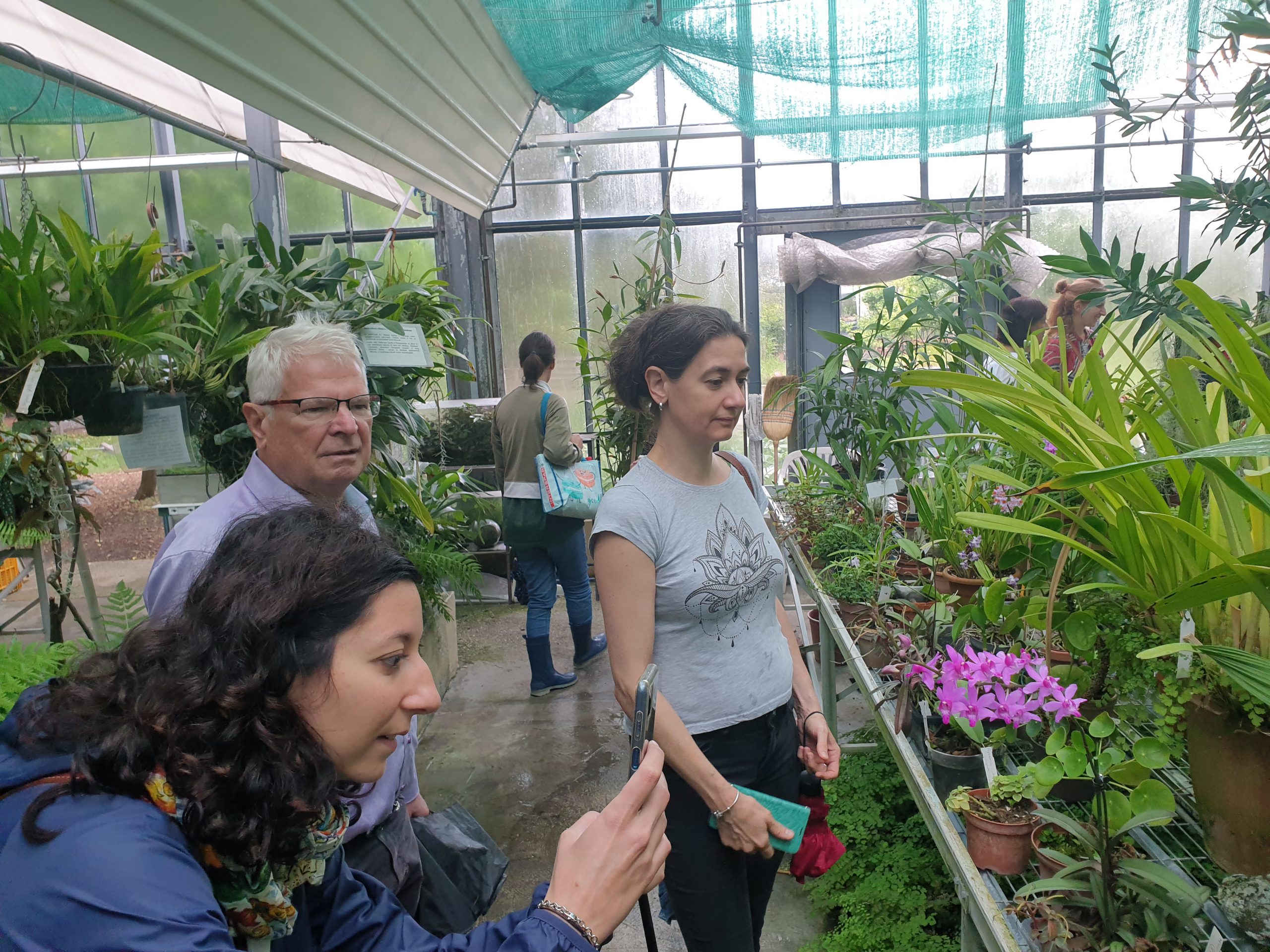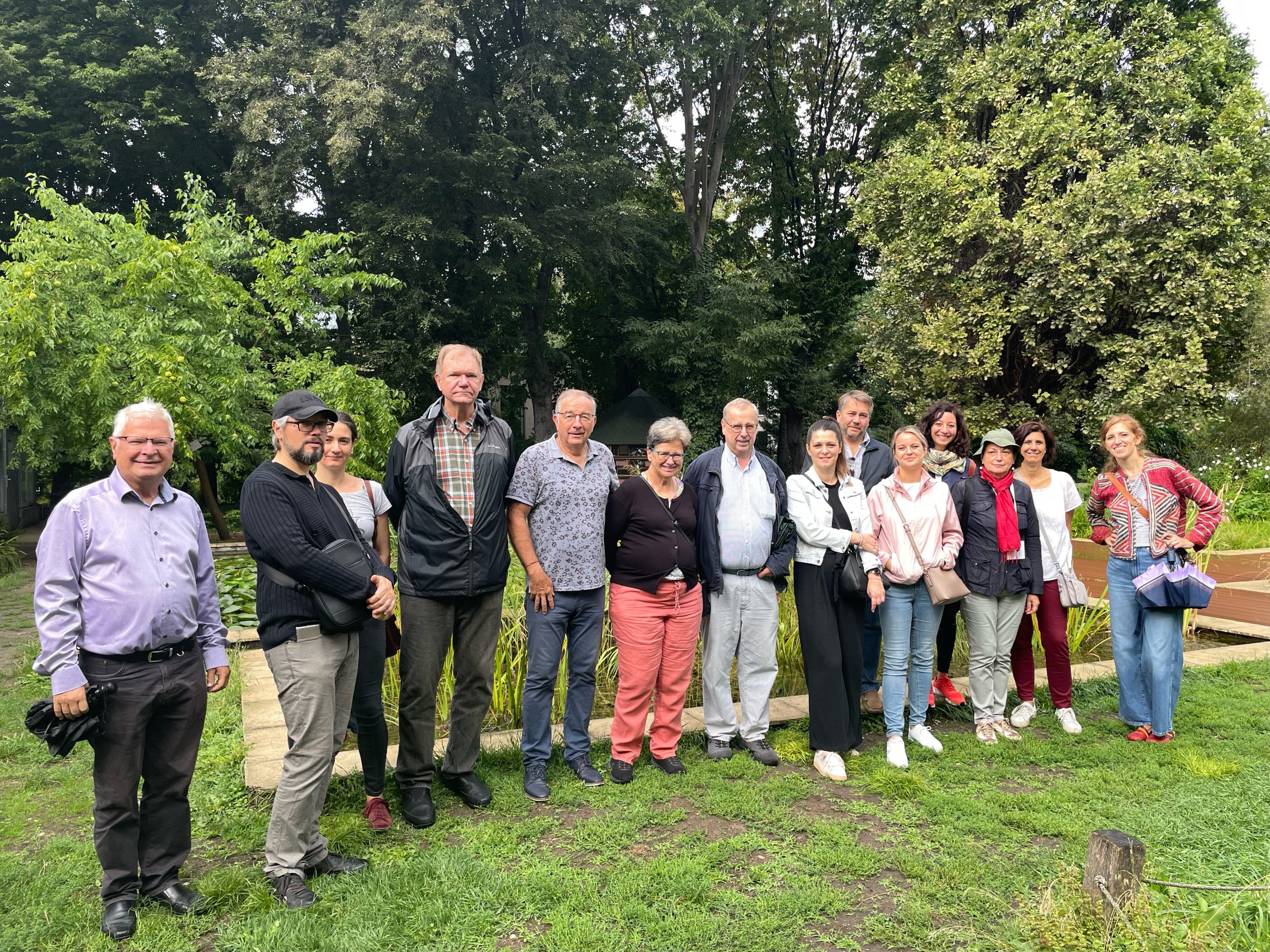An International Ragweed Society conference in Budapest
On September 8 and 9th 2022, scientists from nearly fifteen countries met in Budapest for an international conference organized by the International Ragweed Society.
Ragweed and its pollen is a fundamental natural, economic, human and environmental health problem in many countries around the world. In especially infected countries, the total damage caused by ragweed is significant. For example, in Hungary this damage can reach around 1% of the annual GDP.
The weight and importance of the conference is increased by the fact that ragweed spreads further north with climate change and its pollen concentration increases. So, on the one hand, its health effects also increase and extend to new areas, and on the other hand it causes enormous damage to the cultivated agricultural crops, which – as food shortage is one of the future greatest risk – is an increased challenge for science.
During this conference, nearly thirty oral communications were presented. The topics covered at the conference were the following: Distribution of ragweed species; Agricultural impacts; Economic costs; Authorities and institutions; Aerobiology: expansion of ragweed, spread of ragweed pollen; Pollen transport; Monitoring (classic and real-time); Forecast; Treatment and control methods (chemical, physical, biological, cultural, integrated, etc.); Ragwort and climate change, as well as health aspects (allergen, effect, diagnosis, therapy, etc.).
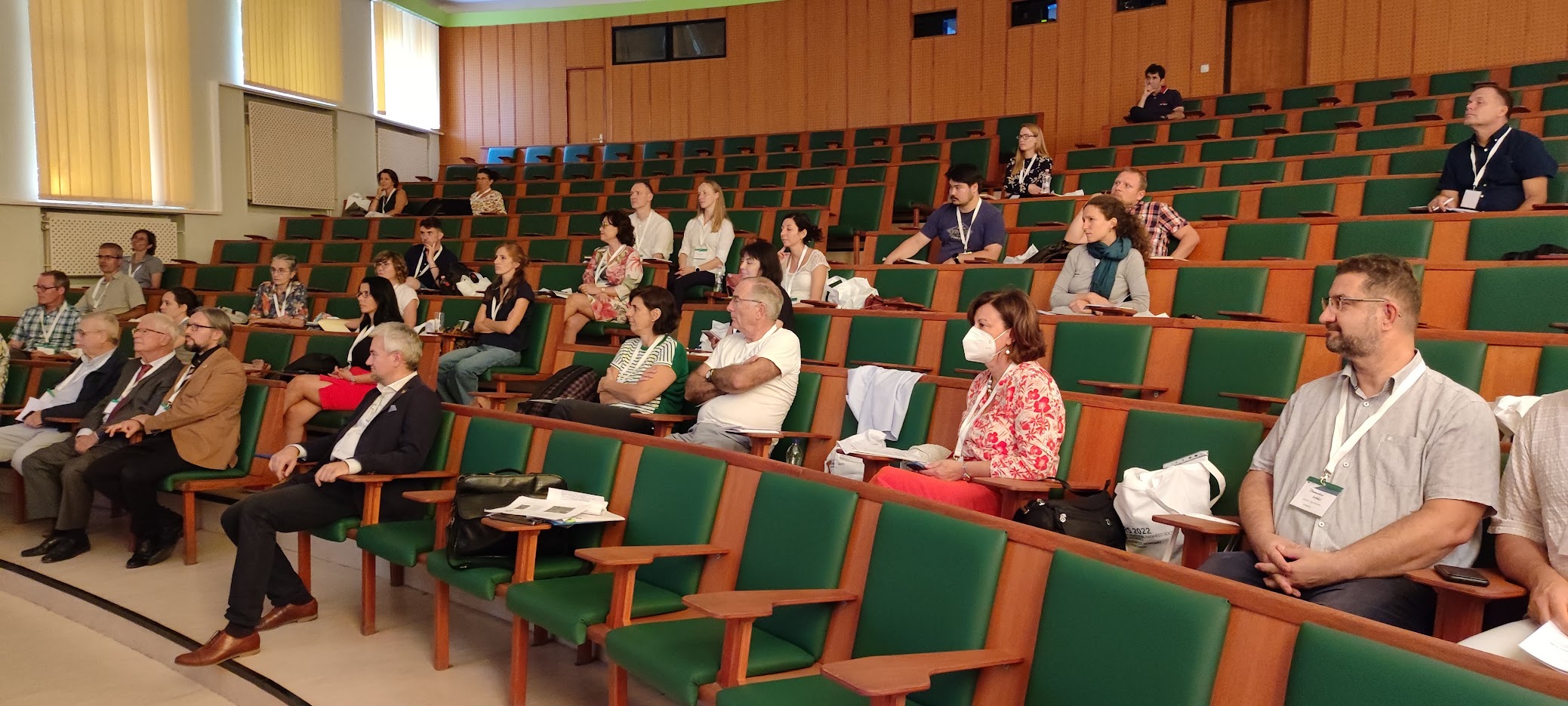

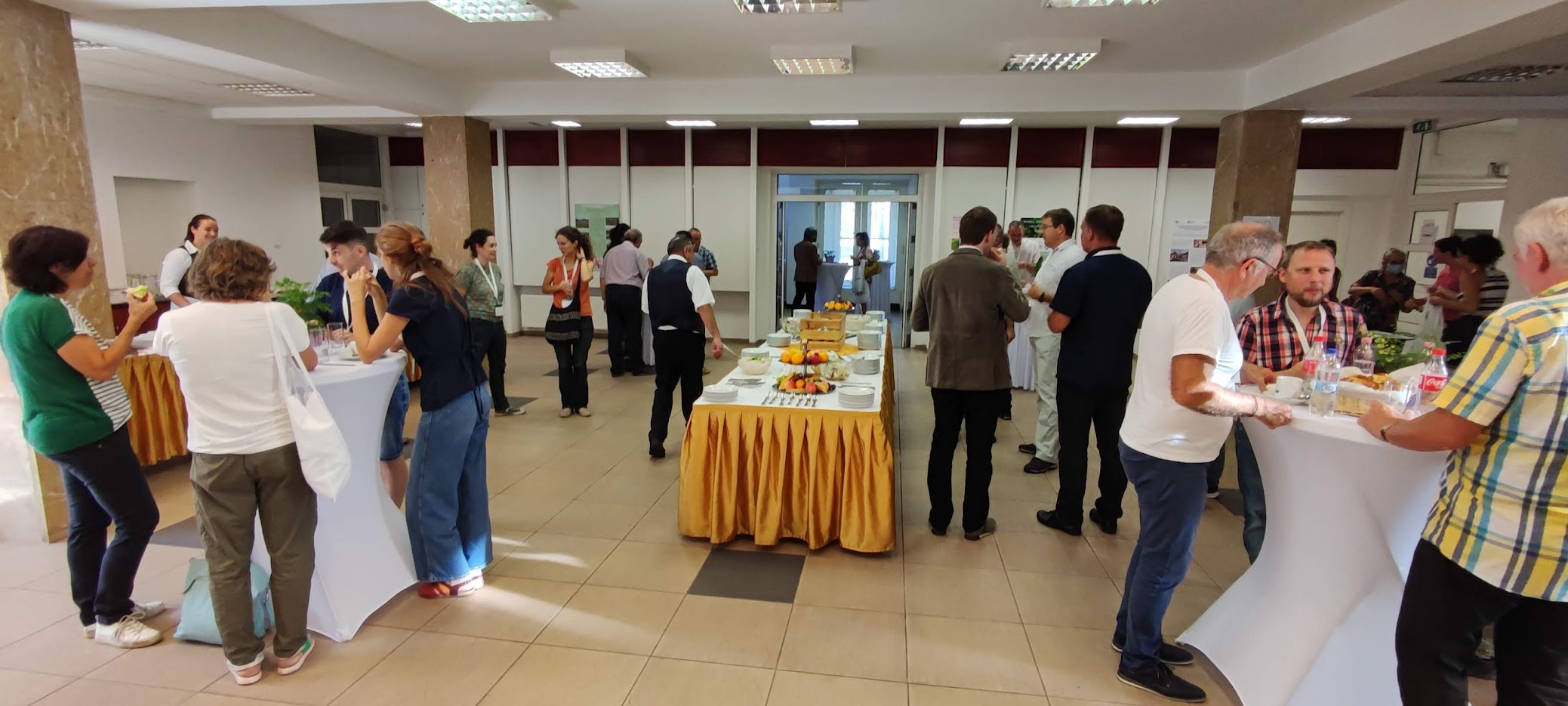
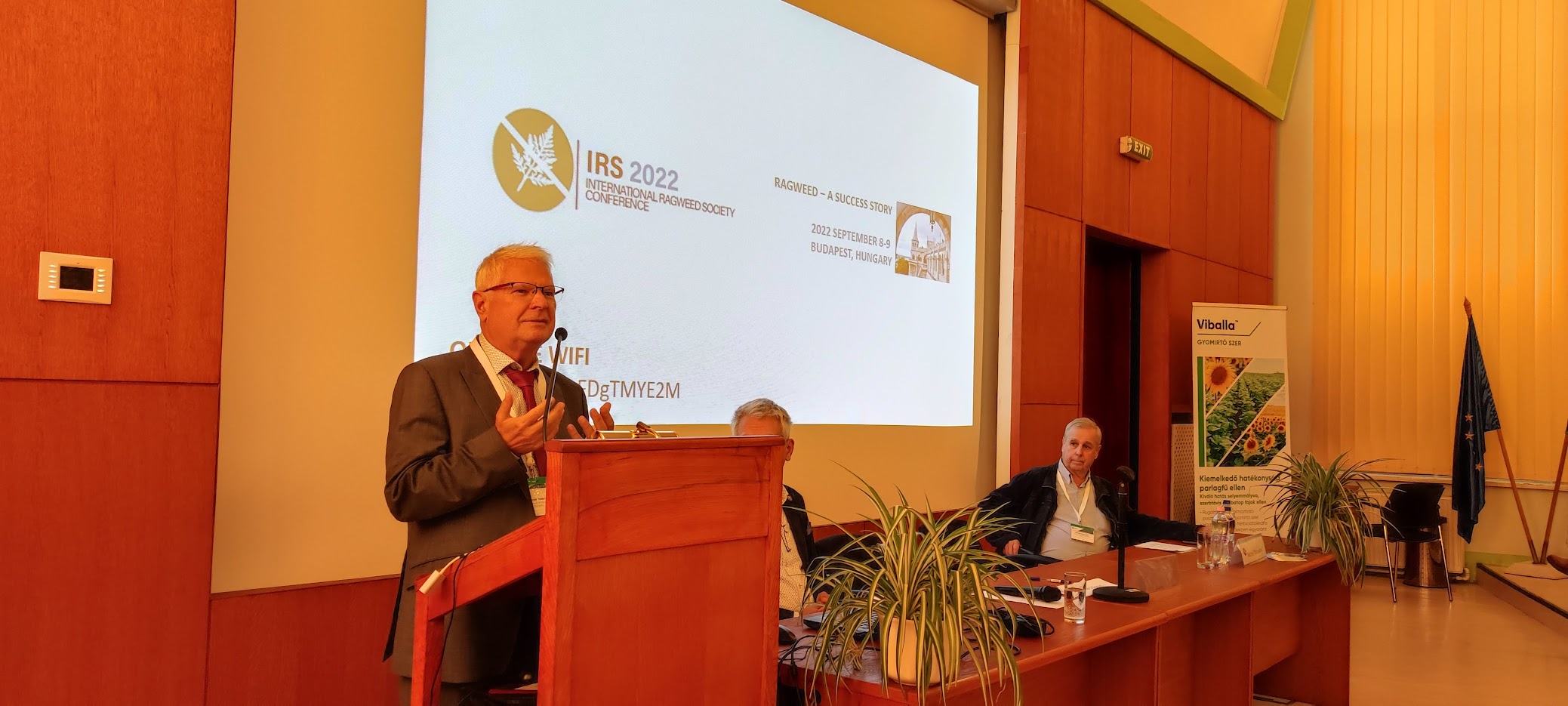
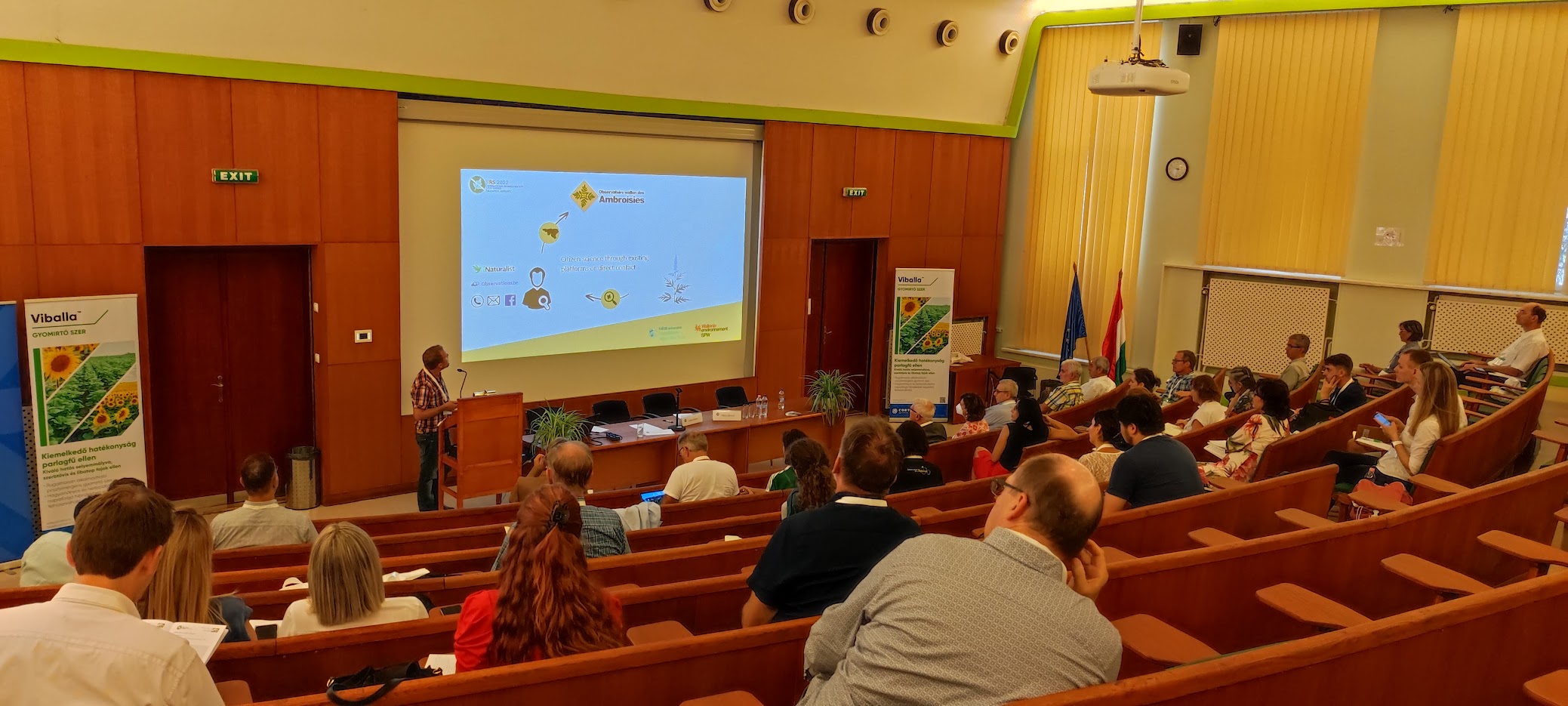
The French ragweed observatory recorded interviews of some european researchers that you can find here : https://internationalragweedsociety.org/ambrosia-in-europe-interviews/
This congress was also an opportunity for the IRS committee to meet for its general assembly and to elect its new members. Thus, László MAKRA from the University of Szeged in Hungary was elected as the new president of the IRS. He succeeds Michel THIBAUDON (France) who chaired the IRS since 2018.
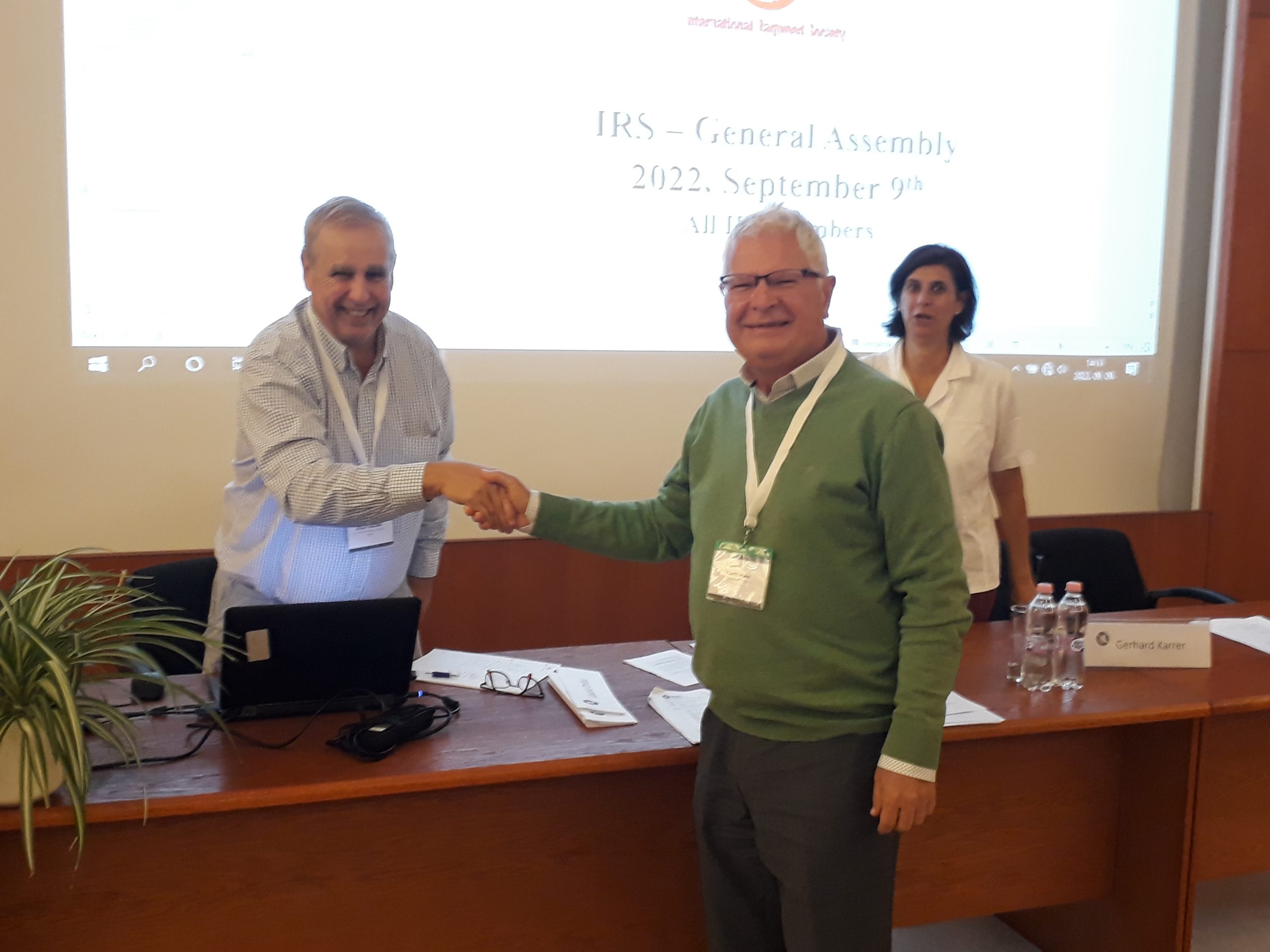
Below are some slides presented during the congress:
- Ragweed: the story of a pollutant – M.Thibaudon
- Ambrosia psilostachya DC. (Asteraceae): the almost unknown ragweed gaining ground – C.Montagnani
- Ragweed pollen forecast: in the Pannonian biogeographical region: lessons learned – D.Magyar
- How to stop the spread of Ambrosia seeds in sowing material (crop seeds) throughout Europe? – M.Mottet
- Photoperiod ragweed – M.Thibaudon
- Estimation of germination parameters of four European ecotypes of Ambrosia Artemisiifolia: contribution to the predictive emergence model – N.Nikolic
- Ambrosia artemisiifolia seed predation levels in Hungarian arable fields and adjacent semi-natural habitats: a key ecosystem service for weed management – M.Osman
- Improving our understanding of nature-based management of Ambrosia artemisiifolia: Testing projections of the impact of Ophraella communa across Central and Southeastern Europe – S.Toepfler
- The Hungarian aerobiological network – 30 years of achievements – T.Szigeti
Other pictures:
